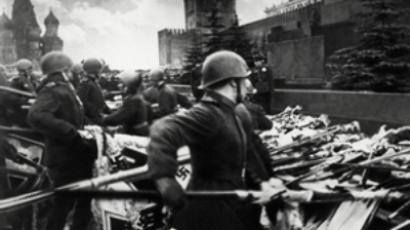Memories of war still fresh in South Ossetian minds
Two years ago a brief but destructive war in the Caucasus led to a redrawing of the region's map. It began with Georgia shelling the region of South Ossetia and destroying part of the capital.
Russia sent in troops to protect the republic’s citizens, many of which were Russian passport holders, and some Ossetians were forced to hide in basements and bombed out buildings.
In five days the Georgian troops had been pushed out and Russia recognized South Ossetia’s independence. However, two years on the memory of war still lingers among the residents who suffered the short-lived but tragic conflict.
Doctor Georgiy Gogichaev works at a clinic in the center of the South Ossetian capital Tskhinval, which two years ago was the only medical facility in the city.
Gogichaev still balks at the idea of coming down to the cellar, where he spent several sleepless nights operating on those injured during the Georgian aggression, though he agreed to walk through it and share his experience with RT.
“This was our operating room,” Gogichaev said of the dismal dungeon-like space. “It smelled awfully of ammonia because of the sewers. The nurses had to leave the room every now and then to be sick. We were performing surgery under these pipes.”
With virtually no suitable equipment, water or food, Gogichaev said the doctors still had to conduct nearly 200 operations here, as well as other minor procedures.
Edward Gabaraev was one of those patients. During the bombardment he hid in the cellar of his home. On hearing the bombing outside, he fled in fear that he would be buried under rubble. As he did, he was struck by a metal fragment from an exploding shell.
“My arm hasn’t been functioning properly for two years,” Gabaraev says. “And I cannot sleep on my right side, as it hurts.”
Gabaraev squarely blames the Georgian president for what happened to him and the others.
“I never want to see him. I don’t even want to hear his name,” Gabaraev says. “He is a murderer. Innocent people were killed, children, the elderly and women.”
Gabaraev was virtually unconscious when he arrived in hospital, but he remembers seeing the many injured there – most of which lying on the bare, wet ground of the makeshift infirmary.
The situation in the hospital proceeded to get worse with every passing minute. Doctors had to treat up to 400 of the wounded simultaneously. Nearby, a TV set broadcast only Georgian television. The ongoing bombardment and lack of factual information further fueled their despair.
Gogichaev recalls the moment as one of the gravest; everyone was in tears, expecting that death would come soon.
“At one point, it felt like nobody was coming to help us at all,” Gorichev says. “Everything seemed in vain. So much work was done for nothing.”
Gogichaev may have been unaware of Russian peacekeepers’ efforts to protect South Ossetia and its people, but his work and that of his colleagues were far from wasted. Out of the hundreds who thought they were staring at death in this cellar, only two succumbed to their injuries.
However, as if that blow was not heavy enough, South Ossetian authorities say Georgia could be planning more attacks on the republic to bring it back under control.South Ossetian President Eduard Kokoity told RT that the Georgian leader is unlikely to give up his intentions, despite a lack of support.
“There are revenge-seeking and provocative moods in Georgia since Saakashvili’s criminal regime no longer has the support of its own people and, most importantly, the support of the US,” Kokoity said.













